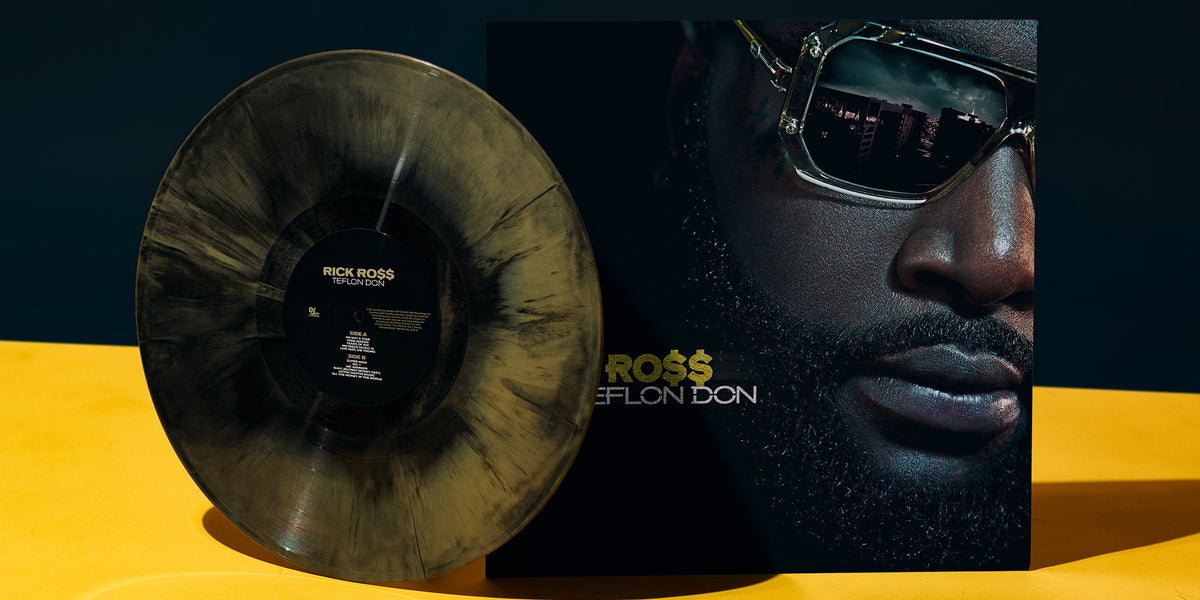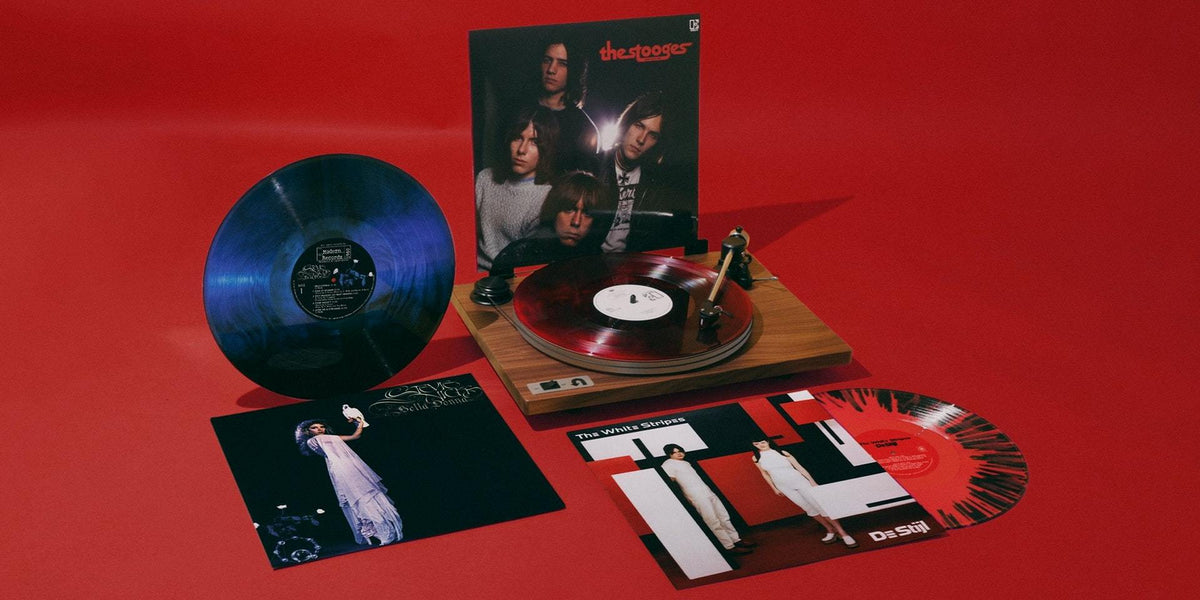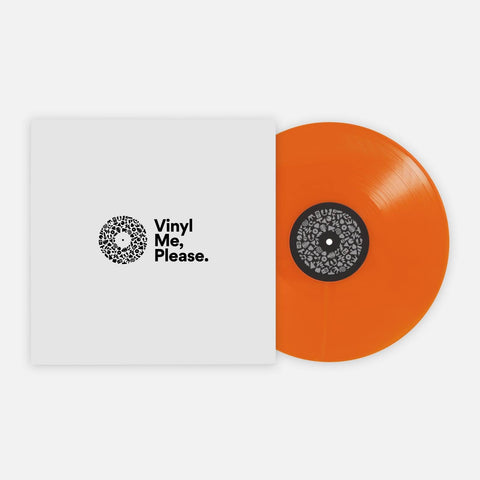Premium Trauma And Glossy Menace: Rick Ross’ ‘Teflon Don’ Turns 10
Considering gangsta rap as a social contract, the speakers we elevate are granted conditional entry based on the perceived authenticity of their stories. In the context of U.S. rap music, the process takes root in the ongoing commodification of Black trauma as the lifeblood of entertainment. One’s authenticity is measured by their involvement in illicit activities, proximity to the struggles of poverty, and their abilities to articulate these conditions in a palatable fashion. Time and again, survivors of traumatic conditions parlay artful renditions of their experiences into the soundtrack of the American Dream; to the victor goes the spoils, while the memories remain. The most premium trauma lingers everywhere we fraternize: the car subwoofer, the regular club, the strip club, the schoolyard. These efforts come in many fashions, tempos, and accents. Nevertheless, it’s either real, true, trill… or fake, fugazi, cap. As time elapsed, the boundaries of this spectrum became far more fluid and conditional on their own.
In the summer of 2008, William Leonard Roberts II — known as Rick Ross — had to weather yet another test of the social contract. The Carol City native was ascending as a mainstream mainstay: “Hustlin’” was his first undeniable hit, he appeared on several summer smashes with close friend DJ Khaled, and both of Ross’s albums debuted at No. 1 on Billboard. While critical acclaim evaded Ross’s early works, his mafioso aura was only becoming more identifiable by beard, belly, and baritone. But what happens when cocaine goes carceral? A batch of alleged photos hit the net, depicting Ross as a corrections officer; he quickly denied the leaks as doctored without proof. Proof came shortly after: The Smoking Gun leaked employment documents from Ross’s employment at the South Florida Reception Center in Dade County from 1995-’97.
Angered and defeated, Ross doubled down even further into his image, with no way of knowing that 50 Cent would be at his head the following year. The true victor of that beef remains up for debate — actually, it never truly resolved — but the nickname Officer Ricky rang off in the blogosphere as 50 levied an all-out assault on Ross’ character. Records, interviews, and ThisIs50 skits all in the name of rooting out Ross as a rat with no street credibility and a damaged home life. No matter the truth, exposure of ties to state corrections directly violates the contract. No matter how good Ross can spin the fast life, the fantasies dry out when past realities don’t align.
But Ross warred back in the same fashion, and once the smoke cleared, Deeper Than Rap made for a three-peat at the No. 1 Billboard spot. Not to mention a significant upturn in critical opinion, marking his growth as an orator to match the luxurious consistencies of his beat selections. After the very moment that jeopardized his career, Ross fought back with records until he lived long enough to regret the double-down. Sure, he had a job once, but beat cop he was not. In fact, Ross saw the C.O. job as another plug in the long game when street hustling was on the verge of drying up. If he couldn’t work the dock, he could sit in boredom while dreaming of better things.
From his 2019 memoir Hurricanes:
“Anyone who was close enough to me to know about this would know better than to call my credibility into question. No girl had ever denied me pussy and no nigga had ever stepped on my toes over me being a correctional officer. Because the moment anyone got close enough to smell the cloth that I was cut from, they knew that I was trained to go.” (p. 166)
“Now I wasn’t just being called an imposter. I was a liar too. And that part was actually true. I had no one to blame but myself. The worst thing about a lie is once you’ve put it out there you’ve got to dig your heels into it and keep it up. And for a while that’s what I did.” (p. 167)
Summer 2008 could’ve been the year he lost everything. By Summer 2010, Rick Ross assembled what many call his magnum opus: Teflon Don. The namesake called back to Roberts’s first rap name — back when he was studying under Tony Draper and Suave House — and served as symbolism for how untouchable he felt in a long life of scrutiny and survival. But this homage wouldn’t go unchallenged, either: former kingpin Freeway Rick Ross attempted to sue Roberts and block the album’s release, but the case was thrown out. Even Carmine Agnello, Jr., the grandson of John Gotti, had many bones to pick with Roberts using the infamous Gotti nickname without asking permission. Yet again, under the scrutiny of the remnants of several cartel legacies, Roberts made the choice to stay fully in character even if the truth of his experiences dangled in limbo under the veil of his persona.
The bit continued: months before the album dropped, he primed listeners with The Albert Anastasia EP, borrowing yet another namesake from the boss of the Gamino crime family. This prequel tape featured the world’s introduction to Teflon Don’s first single “Super High,” and the Lex Luger two-piece of “MC Hammer” and “B.M.F. (Blowin’ Money Fast).” The latter two records not only went down as Ross signatures, but immutable additions to a tapestry of mainstream rap that embraced maximalism until it brimmed over the bassline. By year’s end, Ross would give an unforgettable performance on Kanye West’s “Devil in a New Dress” on the seminal My Beautiful Dark Twisted Fantasy.
No matter where a spectator landed on the scandal, Teflon Don was an album so damn good, it could’ve made Ross’ worst detractors reconsider how much they cared after all. Kingpin music was the hill Rick Ross would die on, and prove he was born for. While the era called for an overindulgence in luxury and opulence, the scene was set for Teflon Don to elevate Rozay from middling mafioso to the Boss he always proclaimed himself to be. It’s the energy he circled around with the works before it, but could never distill and sustain long enough to keep interest. These 11 records not only broke the curse, but elevated the bar; suddenly, Ross’s raps donned a cinematic glow over some of his most potent and engrossing writing. His booming voice placed power in all the right places, ensuring every word was as cutthroat as the project buildings they were molded by.
Considering Ross’ undeniable ear, it only made sense to assemble the most expensivest (a la Tity Boi) of the game’s brightest: J.U.S.T.I.C.E. League, No I.D., Clark Kent, Kanye West. Perfecting his mafioso aesthetic — and salvaging himself — meant acquiring the appropriate blend of gloss and snarl. Teflon Don features the kind of music that sounds like places we can never go, and places we would never go. It’s a collage of gross capitalistic fantasies, inflated to blockbuster potential. “Maybach Music III” features all the stirring strings, key changes, and dramatic swells of the opening credits to the Boss in a Miami penthouse. “Live Fast, Die Young” is 2010 Kanye at his most musically and thematically egotistical, but the synth and string lines charge along like a final blaze of glory in the face of a hustler’s inevitable demise. And for a record called “Aston Martin Music,” the music sounds like night drive against some plush leather, even if the vinyl’s cracking in ya mama’s Sentra. You, too, can be caught in the life with your ride-or-die.
Rather than opting for a coming-of-age narrative in the wake of his past becoming tabloid fodder, Teflon Don places Ross (and us) atop the skyscraper at the apex of his accomplishments. To become bulletproof, one must negotiate the social contract again: be merciless, be extravagant, and go out in a blaze. Show no love, and less emotion. But this time, he grants himself the grace and flexibility to reprise his roles from refreshing vantage points. It’s Scarface without the final shootout, a rich man’s affair down to the iconography of the tracklist. “Maybach Music III” — the luxury vehicle whose namesake was appropriated for Ross’s label — appears on the same album as “Aston Martin Music.” For “MC Hammer” — an infamous story of rags-to-riches to rags again — shows up right before “B.M.F.,” also the acronym for the Black Mafia Family enterprise of which Big Meech was a member. While Ross’s criminal exploits were a narrative all their own, his sequencing and callbacks are deliberate anchors for the gravity of his worldbuilding.
Ross consistently invokes the names and lives of infamous figures throughout Teflon Don: Bobby Seale, Emmett Till, Big Meech, Larry Hoover, Biggie Smalls, and Afeni Shakur to name a few. When he’s not flaunting his wealth, the narrow narrative scope opens wider to reveal a man wrought with the pain of systemic injustice and deep survivor’s guilt. For all his posturing, he elevates even further when leaning into the power of his sharp observational skills. In recent interviews, Ross recalls coming up with the “MC Hammer” hook by being chauffeured around the Hollywood Hills to see the mansions for inspiration. For “Tears of Joy,” the Willie Hutch sample flip calls back to the 1974 blaxploitation classic Jackie Brown, expanding the reference depth for Ross’s soulful gangster aesthetic. On the album closer “All the Money in the World,” Ross presents himself in full vulnerability, mourning the loss of his father over a decade prior as no mansion proves big enough to fill the void of a deadened connection.
Regarding the idea of premium trauma: by the end of summer 2010, you heard Teflon Don from somewhere. Ross tore the radio and the blogs up, from Lex beat to Drake bridge I remember my homie Swish lending me a ride somewhere through the backroads in Maryland, probably to work on some music. Both our parents were cops, my father used to be a narc, and here we were with the Boss guiding our travels. I recall lifting my furrowed brows at the “B.M.F.” refrain, in a “who the fuck is that?” fashion. At age 16, I had no damn idea who Big Meech or Larry Hoover were, save for the context clues Rick Ross handed me. But I’ll never forget how thunderous the knock felt in abundant sunlight, against my brittle backpacker eardrums. I’ll also remember how my own father, former Snoop Dogg fan-turned-grown-up, mumbled the “B.M.F.” hook himself… just to tease me.
I’m sure he found minimal humor in the hook, but he’d find even more in the story if he cared to look. For all the concerns of authenticity, Rick Ross remains one of rap’s strangest cases in recovery of an image. He hid from a snippet of his truth long enough to twist the narrative back in his favor, to recover from the jeopardy of an impending social death no kingpin could afford. There’s another timeline where the weight of such an accusation deflates Ross’s career entirely, relegating him to The Guy Who Made “Hustlin’” with a few big appearances and a handful of passable albums under his belt. But Teflon Don earned him the respect on his pen, a true critical consensus, and some hit records he could never quite land since “Hustlin’” put him on the map. It was a new breed of methodical diabolical, starring the Boss for the cost of one compact disc. While Teflon Don remains his defining classic of the genre, Ross is still unveiling pieces of himself a decade after the fact. And in his best turns of phrase, from Rozay to Renzel, he’s aged like a Ciroc flavor we’ll never have the privilege to taste.
Michael Penn II (aka CRASHprez) is a rapper and a former VMP staff writer. He's known for his Twitter fingers.
Related Articles
Join the Club!
Join Now, Starting at $36Pages







